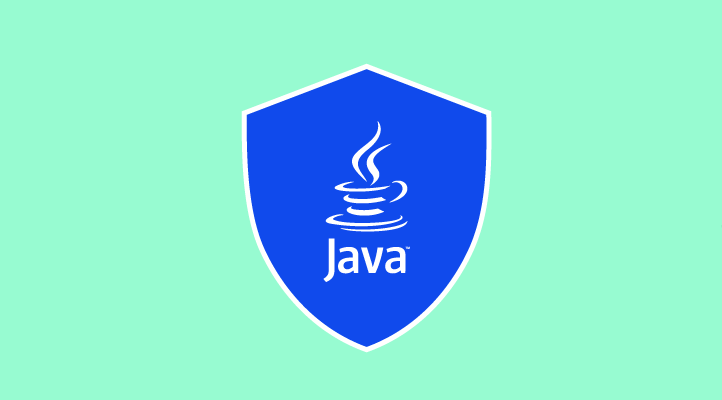
Java Technology Security Best Practices To Know In 2023
Irrespective of which programming language you choose, using best practices and the latest standards keeps your business software secure and reliable. Java development services is no exception, and despite its ubiquity and effectiveness, vulnerabilities are part of it.
Java is a popular programming language and supports a wide array of applications worldwide. Its popularity makes it critical to ensure the security of these applications. If you run a Java-based application and what to stay updated with the best standard practices, this blog is just what you needed.
Here, we’ll explore a few Java security best practices that can help organizations secure their applications. But before going deeper, let’s understand Java security first.
What is Java security?
Java security is divided into three major parts – Tools, APIs, and libraries, which include some common security algorithms, mechanisms, and protocols. The Java security APIs have several layers including cryptography, public key infrastructure, secure communication, authentication, access control, and more.
While Java security best practices comes with its comprehensive security framework, its security features require the developer’s assistance. Java is inherently stronger than most programming languages. One reason for it can be its robust data typing and other built-in security features. Further, the JDK maintainers regularly release updates to ensure its security.
Now, let’s focus on the best practices of Java that make it a secure application platform.
What are the Java security best practices?
We’ve compiled a list of guidelines to provide a foundation for secure programming in Java. By following these conventions, you can build secure software that withstands all vulnerabilities during production.
Use modules to isolate internal code
One of the primary reasons why Java is so popular is its modules system and access modifiers. Leveraging these features is the first step towards creating robust and secure Java code.
Java modules are reusable, encapsulating the classes and interfaces in their packages, except for the public classes and public interfaces in their exported packages. It means that code outside the module can access the public classes and public interfaces. However, it can’t access the classes and interfaces in another module’s package despite getting public. Packages in Java development services aren’t exported by a module but hidden from code outside the module.
You can declare a module to help packages that contain a published API get exported, and packages that support the implementation specifics aren’t exposed to malicious activity. Also, it will examine all the exported packages to ensure that no security-sensitive classes or interfaces get exposed. Therefore, exporting the additional packages in the future will become easier by rescinding an export may introduce compatibility concerns.
Simple Java code
Like any other program your developers write, the more code you have, the more vulnerable it becomes to handle. Java’s static typing and mature language conventions start to dissipate while adding layers of complexity. Some of how you can keep your code simple for security reasons include:
- Abstract implementation details away from end-users using access modifiers
- Use private whenever required
- create modularity and compartmentalize the API
- Use GuardRails to determine the latest vulnerabilities in your code release
Use proved and popular Java libraries
It’s not uncommon to use open-source libraries that help accelerate your Java development services and build a foundation for innovation. It’s crucial to use libraries that are famous and updated at regular intervals.
Popularity helps drive regular updates, but it also means they are highly prone to vulnerabilities that are discovered and remedied before pushing the code to production. Using proven libraries and open source will help reduce the security risks in software, and keep your Java codebase in line with security best practices.
Hash user passwords
It may sound obvious, but ensure to use a salted hash on user passwords. SHA-2 is a great algorithm to use for hashing, but also welcomes malicious behavior and compromises your user information. Irrespective of the context or use case, hash passwords help keep data safe.
Error handling and logging
In many ways, exception handling can accidentally expose the structure of your application, error handling, and logging at the same time. Stay vigilant in how you log in to your user-sensitive information. Stay safe to handle all these errors to use generic screen error messages for users and resolve the concern beforehand.
Summary
Although many of these principles apply to Java applications, following these tips will ensure keep your software is safe and secure. Also, think about security in the development of your application in the design stage and code reviews, and look for vulnerabilities in your Java code. Make sure you take advantage of the Java security best practices, APIs and libraries.
Hire Java developers who can help you keep your Java codebase secure with up-to-date language implementation features, static, and dynamic analysis. To know more, get in touch with our experts today.
FAQs
What makes Java suitable for creating security applications?
Java is a secure platform for the following reasons:
- It runs inside a virtual machine which is known as a sandbox.
- It doesn’t support explicit pointer
- The byte-code verifier checks the code fragments for illegal code that can violate access right to the object
How many types of security are there in Java?
The Java platform defines a set of APIs spanning major security areas including cryptography, public key infrastructure, authentication, secure communication, and access control. Also, these APIs help developers integrate security into their application code.
Can Java be used for security?
Java is often cited as a highly-secure programming language. Like any other aspect of cybersecurity, the level of programming language security depends on our definition of “secure.” Java indeed has few identified vulnerabilities than other commonly used languages.

